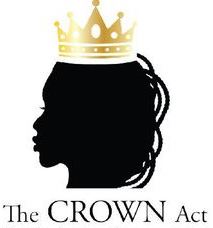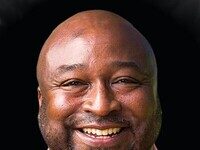 According to a new study by Dove’s CROWN Coalition (Creating a Respectful and Open World for Natural Hair), Black women report being 30 percent more likely to receive a formal grooming policy in the workplace. Additionally, the study found that some natural African-American hairstyles, such as locs, braids, and natural curls, are perceived as less professional.
According to a new study by Dove’s CROWN Coalition (Creating a Respectful and Open World for Natural Hair), Black women report being 30 percent more likely to receive a formal grooming policy in the workplace. Additionally, the study found that some natural African-American hairstyles, such as locs, braids, and natural curls, are perceived as less professional.
For the study, the CROWN Coalition surveyed 2,000 United States women aged 24 to 64 who worked in office settings. When shown two images of a Black woman and White woman with the same hairstyle, respondents typically rated the White woman as 25 percent higher in “job readiness” than the Black woman. The results also found that Black women were 1.5 times more likely to have reported having been sent home or knew another Black women who was sent home because of her hair.
Additionally, the results found that natural Black hairstyles such as locs, braids, and bantu knots were ranked lowest for “job readiness,” Black women were significantly more likely to receive formal grooming policies in the workplace, and Black women were 80 percent more likely to change their hairstyle to meet societal and workplace expectations.
 After uncovering this racial bias, the CROWN Coalition sponsored The CROWN Act in the state of California. The bill was recently passed by the California State Senate and will be reviewed by the California Assembly this year. If it passes, the bill will prohibit policies that discriminate against people because of their hair style.
After uncovering this racial bias, the CROWN Coalition sponsored The CROWN Act in the state of California. The bill was recently passed by the California State Senate and will be reviewed by the California Assembly this year. If it passes, the bill will prohibit policies that discriminate against people because of their hair style.
A petition to support the legislation may be accessed here.











Jah and Jahnes love.
I feel that the findings of this groundbreaking Research Study found what I and many Black women that I know experience for generations. The idea that in order to be accepted in a workplace environment, white phenotype and more specifically white hair is required makes me angry. Black women with naturally tight curls are pushed to use chemicals to straighten their hair. And, so many are forced to buy fake or real white hair and by doing so, contribute to an economy that they don’t control. I am happy to sign this petition that will procure government intervention to stop discriminatory practices against black women’s natural hair styles. I am a Nyabimghi RastafarI and I wear a headwrap over my long Natty dreads. I have a right to work at professional establishments that I qualify for. Blessed love.
I was hoping we could move beyond this stigma bug it also makes me wonder if some of these things aren’t self imposed. How many Black women have the conversation with other Black women that their hair must be…in order to…
Just curious.
Thanks for your work on this. This is my area of research (assistant professor at Jacksonville University). Will you take your advocacy to other states? How can I become involved? And, do you fund research? My natural hair bias study begins July 1.